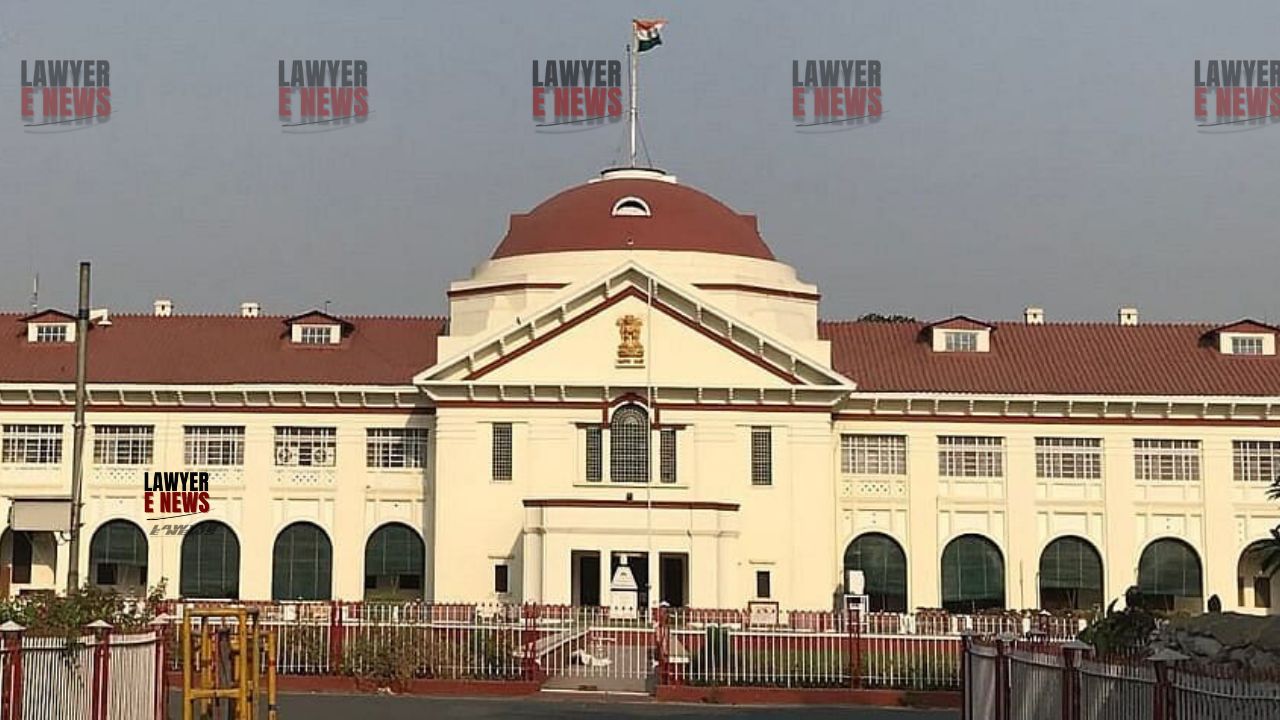-
by Admin
15 February 2026 5:35 AM



In recent Judgement, Patna High Court delivered a significant ruling in the case of Shweta Singh vs. Pranav Kumar Singh, overturning the Family Court's dismissal of a divorce petition. The High Court granted divorce to the appellant, Shweta Singh, citing cruelty based on prolonged separation and the husband's failure to provide emotional support. This ruling underscores the broader interpretation of cruelty in matrimonial law and emphasizes the significance of mutual care and respect in a marriage.
The case originated with Shweta Singh filing for divorce on January 3, 2018, under Section 13(A) of the Hindu Marriage Act. She alleged that her marriage to Pranav Kumar Singh, solemnized on November 30, 2014, involved significant dowry demands, including ₹10 lakh in cash, gold, silver, and household items. Shweta claimed that after her marriage, she was subjected to continuous harassment and dowry demands, leading to mental and physical cruelty. She asserted that the marriage was not consummated, and despite efforts to reconcile, she was ultimately driven out of her matrimonial home on March 20, 2015.
The Family Court, in its judgment dated May 1, 2023, dismissed Shweta's divorce petition on the grounds that the allegations did not fulfill the legal definition of cruelty and that she had not raised her grievances before any appropriate forum. The court emphasized that her evidence lacked specific instances of cruelty and concluded that the disputes were trivial in nature. Aggrieved by this decision, Shweta filed a miscellaneous appeal before the Patna High Court.
The key legal issue was whether the respondent's conduct amounted to cruelty under Section 13 of the Hindu Marriage Act. Shweta's counsel argued that the respondent's behavior, including repeated demands for dowry, harassment, and the failure to appear in court, demonstrated cruelty. The counsel also highlighted that the husband's non-cooperative attitude, his absence from court proceedings, and his refusal to reconcile or support his wife constituted mental cruelty.
The High Court referred to established precedents, including Dr. N.G. Dastane vs. Mrs. S. Dastane and V. Bhagat vs. D. Bhagat, to interpret the concept of cruelty. It stated that cruelty must be viewed in the context of human conduct and behavior, affecting the mental and emotional well-being of the spouse. The court noted that the definition of cruelty is broad, encompassing both physical and mental aspects, and depends on the specific circumstances of each case.
The High Court observed that the Family Court had adopted an overly technical approach in assessing the evidence and allegations of cruelty. It criticized the Family Court for not adequately considering the fact that the respondent had not appeared in court despite being served notice, indicating his disregard for the marital relationship. The court emphasized that in matrimonial disputes, the standard of proof is "preponderance of probability" rather than "beyond reasonable doubt."
The judgment detailed that Shweta had been residing separately since March 20, 2015, due to continuous harassment and cruelty from her husband and his family. Despite her efforts to reconcile, the respondent failed to take any steps to restore the conjugal relationship, demonstrating a lack of interest in maintaining the marriage. The court also took into account that the appellant was aged 35 at the time of the appeal and had already lost significant years of her life due to the ongoing litigation.
Referring to the Supreme Court's interpretation of cruelty in Roopa Soni vs. Kamalnarayan Soni and Samar Ghosh vs. Jaya Ghosh, the court highlighted that cruelty encompasses a wide range of behaviors, including emotional neglect and lack of care. It noted, "In family matters, the proof cannot be put into the category of beyond reasonable doubt but into the category of preponderance of probability."
The High Court further elaborated on the nature of matrimonial life, emphasizing that both parties must take care of each other and share emotional burdens. It stated that the respondent's neglecting attitude towards the appellant, his failure to appear in court, and his lack of effort to reconcile, all pointed towards mental cruelty. The court asserted that in cases where one spouse does not take interest in the marital relationship or fails to appear in court to defend themselves, it could lead to mental cruelty.
Setting aside the Family Court's judgment dated May 1, 2023, the Patna High Court granted the divorce, stating, "Accordingly, the marriage of the appellant and sole respondent held on 30.11.2014... stands dissolved from this day." The court underscored the importance of mutual care and emotional support in a matrimonial relationship, and how the absence of these elements could amount to cruelty. This judgment serves as a significant reminder of the broader understanding of cruelty in matrimonial disputes, where emotional neglect and prolonged separation are valid grounds for divorce.
Date of Decision: September 12, 2024
Shweta Singh vs. Pranav Kumar Singh
